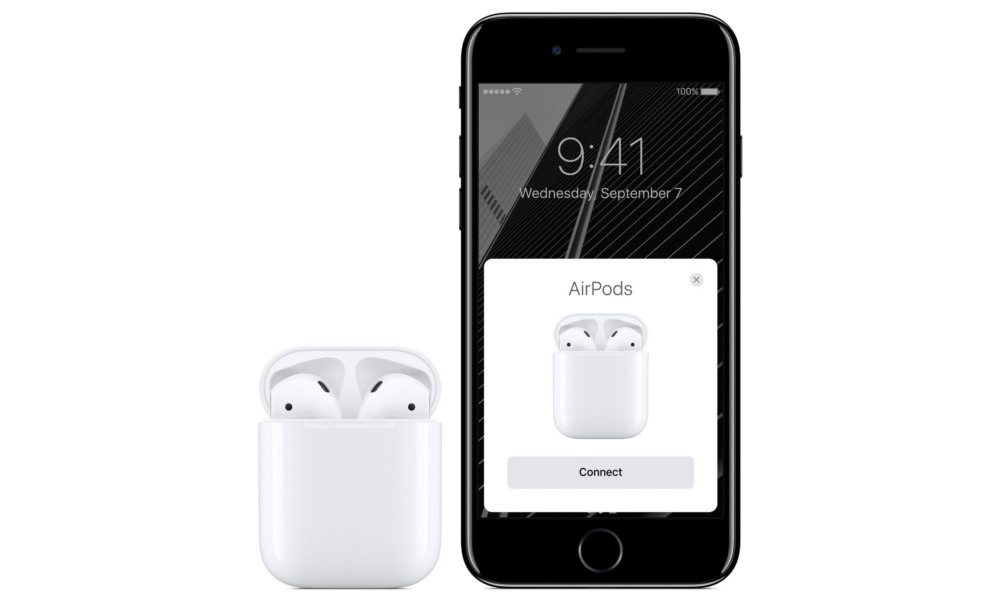Apple Continues to Deviate from Other Tech Companies – and That’s Not Necessarily a Bad Thing

Toggle Dark Mode
It’s no secret that, when it comes to the tech world, Apple is a different creature entirely. For years, Apple has both leapt ahead and lagged behind its competitors. And sometimes, it’s deviated entirely — removing the 3.5mm headphone jack from its newest iPhone 7 line comes to mind. But for as much controversy as decisions like that create, it’s all a part of Apple’s plan.
Removing the headphone jack from its iPhones — while a cumbersome transition at first — might just be the first step in Apple pioneering the way we listen to music on our devices. Apple AirPods might not be the future of mobile music listening — and let’s face it, it has its downfalls — but no first step is ever without clunkiness.
The removal of the headphone jack is going to create some fuss and inconvenience — but past the transitional period, we’re bound to see something better. Something that just works. In fact, Apple’s entire brand is based on the “it just works” philosophy — and anyone with an Apple ecosystem can attest to that.
Rather than fussing to get your Windows PC to work with your Android phone and Fitbit smartwatch, Apple’s devices are specifically designed to work in sync with each other pretty much out of the box. And while we do make sacrifices as Apple device owners, we make up for it in convenience.
Take the iPhone and iPad’s lack of expandable storage as an example. While we can’t add storage to our phones, allowing an expandable SD card or hard drive to be compatible with an Apple iPhone would require tweaking Apple’s file system — and it would force Apple to lower its hardware and software standards in the process.
And, on the consumer end, rather than having users fuss with do-it-yourself file management, Apple’s file storage system pretty much does it for them. And while the more tech-savvy consumers out there might balk at Apple’s control of such a feature — it saves the rest of us a lot of headache. Basically, anything that can cause confusion to an Apple device user isn’t allowed. Apple trades the ability to micromanage your tech ecosystem for ease of use.
Let’s use another Apple device pitfall: the inability to replace the battery on iOS devices. But Apple did extensive market research on the topic, and found that most users will never replace a battery in their devices. So rather than adding the ability to do so, Apple figured it could make a cheaper and more efficient battery by simply building it into the device. Not to mention that a battery cover is an inherent weak point in a phone’s exterior.
And for naysayers who bring up the fact that a worn-out battery basically makes an Apple device useless — they’re right, at least partly. But Apple has a program where they’ll replace an iPhone or iPod battery — completely free of charge.
Apple’s stringent design standards give their devices an edge, too. Cupertino uses high-quality materials and hardware in its tech — all of which are optimized to work in sync with each other. Let’s not forget the speed test where an iPhone 6s beat out a Samsung Galaxy Note 7 — even though the Android device has, on paper, newer and better hardware.
So while the Apple ecosystem is not perfect — and who could expect it to be — it’s arguably of the best and most fluid ecosystems out there, if only because of the reason that “it just works.” It might not be the best for everyone, but it’s perfect for a large segment of the population
Apple will always have its critics, but while everyone else is arguing over their design decisions, Cupertino will continue to pioneer new and unique tech features — even if that means some missteps along the way. In the words of Steve Jobs: “Sometimes when you innovate, you make mistakes. It is best to admit them quickly, and get on with improving your other innovations.”






